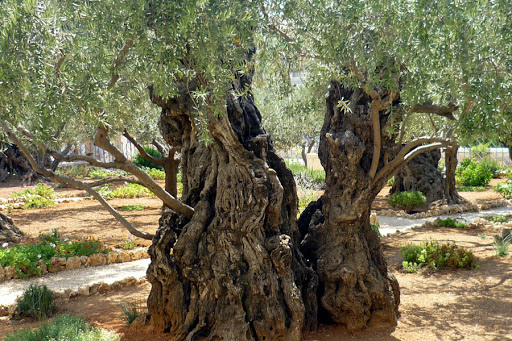Monday 9 May 2022
1. Pope Francis blames the victim in Russia-Ukraine war
2. A new documentary throws light on the ‘dark side’ of Mother Teresa
3. The Synod of Bishops’ letter to LGBTQ people
4. The 5 potential names for the future president of the Italian bishops
5. A congress in the Vatican on the virtues of olive oil
~
1Pope Francis blames the victim in Russia-Ukraine war
In an opinion article published on Fox News, Professor of History at The Institute of World Politics (Washington DC), Marek Jan Chodakiewicz, strongly disagrees with Pope Francis words that “NATO [was] barking at Russia’s gate,” which, in his view, “posit parity” between the two sides, Russia on one hand and Ukraine and NATO on the other. He called the use of the word ‘barking,’ “an unfortunate choice of words by Pope Francis” and wondered whether the pontiff understood “their implication” or if it was “another Bergoglio foot-in-the-mouth moment.” The American scholar said that if anything it was the “Ukrainian dog,” and not NATO, “barking at the intruder by its own fence and inside the property as the mighty eastern neighbor continued trespassing on Ukrainian territory.” Professor Chodakiewicz concludes the heated article by saying that “instead of positing false parity between freedom and unfreedom, let Pope Francis embrace silence which is golden sometimes.”
Fox News, English
2A new documentary throws light on the ‘dark side’ of Mother Teresa
A three-part documentary series from the Sky Group, titled “For the Love of God,” intends to shed light on the ‘dark side’ of the nun canonized in 2016 by Pope Francis, reigniting the controversy over her approach to poverty. This survey of her friends and critics brings to light her spirituality linked to “Jesus on the cross.” “She thought being poor was good because Jesus was poor. It’s schizophrenic,” Mary Johnson, a former collaborator of Mother Teresa, says in the report. The documentary also discusses the alleged protection she gave to priests accused of abuse, including the American Jesuit Donald McGuire (1930-2017), who was her confessor. By writing a letter in 1994 in support of him, Mother Teresa apparently slowed down the proceedings against this priest, who was eventually returned to the lay state and died in prison.
New Indian Express, English
3The Synod of Bishops’ letter to LGBTQ people
“Our attitude towards [LGBTQ] ecclesial communities – as well as towards those of the many who are different – has too often been marked by emphasizing difference and erecting barriers, rather than bearing witness to the merciful love,” laments Thierry Bonaventura, head of communications for the Secretariat of the Synod of Bishops. He dedicates a Synod newsletter to the theme of welcoming LGBTQ communities on their own synodal journey. “No one can be considered an ‘other’ in the Church, no matter who they are,” he asserts. The logic of the Church, Father Bonaventura explains, is neither that of politics, which erects walls “to highlight the differences,” nor that of economic-commercial logic, where “the other is useful to me only insofar as that person can benefit my personal well-being.” The logic of the Church is hospitality: “grace-filled freedom that is not afraid of diversity and knows how to make room for the other.” In conclusion, he hopes “that all people, including our LGBTQ friends, are able to feel that their voices are being heard during this Synod.”
Synod Resources, English
4The 5 potential names for the future president of the Italian bishops
According to Vatican journalist Francesco Antonio Grana, five names have emerged as the possible next president of the Italian Episcopal Conference (CEI), which has the distinction of being appointed by the Pope himself. The choice should be made before the end of May. The Pontiff gave his criteria in his recent interview with Corriere della Sera, wishing for a president “who wants to make a good change,” adding that he would prefer an authoritative cardinal. For the Vatican expert, Francis has “blocked the way to the more than 200 diocesan bishops eligible on paper.” Only five cardinal-bishops are therefore eligible to succeed Gualtiero Bassetti: Archbishop of Bologna Matteo Maria Zuppi; Archbishop of Florence, Giuseppe Betori; Archbishop of L’Aquila, Giuseppe Petrocchi; Archbishop of Siena, Paolo Lojudice; and the papal vicar for the diocese of Rome, Angelo De Donatis. According to the new statute from 2017, the bishops of the Peninsula gather in a general assembly to elect three bishops by absolute majority. The Pontiff then chooses from the three proposed.
Il Fatto Quotidiano, Italian
5A congress in the Vatican on the virtues of olive oil
In the last few days, the members of the Pontifical Academy of Sciences met to discuss an original topic: olive oil. This results from a friendship between the Chancellor emeritus of the Academy, Bishop Marcelo Sánchez Sorondo, and the late Paolo Pasquali, philosopher and great promoter of olive oil in Italy. The olive tree is a biblical tree and Christ, as the Messiah, is “anointed,” meaning consecrated with oil, emphasizes the Corriere della Sera. Symbol of the spirit, oil is also present in the anointing of baptism, priestly and episcopal consecrations and for the anointing of the sick, recalled in a speech Cardinal Giovanni Battista Re, dean of the College of Cardinals. The seminar also focused on the dietary virtues of olive oil, especially in the Mediterranean diet. “Talking about the cultivation of olive trees and oil also means being concerned about the protection of the territory and the landscape. This means that we must ask ourselves how to develop the culture and production so that this wonderful thing can reach and benefit everyone,” explained Bishop Sorondo.
Corriere della Sera, Italian

